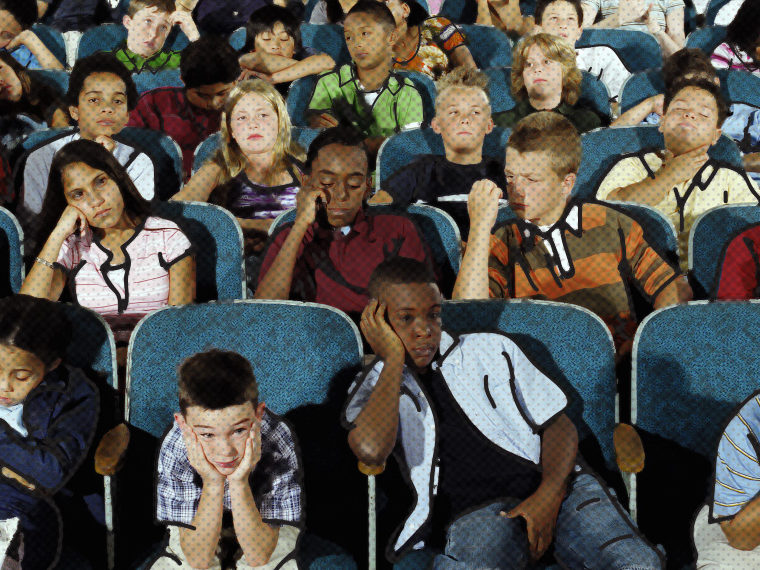Notion that boys are innately better at math undermines girls’ self-belief
Despite a heightened societal awareness of the dearth of women working in science, technology, engineering and math fields, the gap remains wide. According to U.S. Census Bureau data, women made up 48% of the workforce in 2019 but held just 27% of all STEM jobs. That ranged from nearly 47% of mathematical jobs to 15% of engineering jobs.
Given that many STEM careers are in the fastest-growing parts of the economy, and those jobs typically come with lucrative salaries, the pernicious gender wage gap that also gets plenty of attention, is in part a result of women not landing in these fields. According to Pew Research, the average STEM worker earns two-thirds more than workers in other fields.
While much research and academic initiatives have focused on ways to encourage and support young girls to age into studying STEM fields in college, and then pursue STEM careers, a paper forthcoming in Psychological Science by UCLA Anderson’s Sherry Jueyu Wu and Xiamen University’s Xiqian Cai suggests what’s also needed is addressing how teen girls can be influenced by their own peers who believe the factually incorrect stereotype that boys are innately better than girls at math.
Opt In to the Review Monthly Email Update.
The Algebra of Peer Influence
A field study mined the level of belief in the boys-are-better-at-math stereotype among more than 8,000 middle-school students in China. Wu and Cai found that even though middle-school girls typically score better than boys on math tests, when there is a preponderance of students in a given classroom who believe boys are more naturally adept at math, the performance of girls on standardized math tests is lower than in classes where their peers do not carry an outsized belief in this gendered stereotype.
Wu and Cai then explored the extent to which this apparent middle-school peer influence continues to seep into the psyches of women in college. In a lab experiment they recruited nearly 550 participants lured with monetary payouts to take math quizzes that also paid bonuses for correct answers. Among participants who were first primed with a five-minute video that pushed the notion that males are better than females at math, the test scores of women were lower than those of other female participants who were not exposed to the your-math-skills-are-inferior video. The math test scores of men exposed to the same video did not impact their test scores.
Middle School: The STEM Danger Zone for Females?
Wu and Cai center middle school as a particularly important evolutionary period for studying the potential impact of peer pressure related to the stereotype of boys being naturally more capable in math.
This is a developmental stage when teens are typically forging a stronger sense of self separate from their parents. Given the often tenuous nature of that transition, young teens distancing themselves from the influence of their parents may fill that hole by putting more credence into the opinions of their peers. (As if this needs to be pointed out to survivors of their own peer-pressured teen years.)
It’s also a period when objectively — as measured by standardized tests — girls on average have better math skills than boys. That fact should debunk the stereotype that boys are better than girls at math, at least at this life stage.
But that’s not necessarily how teens see it.
The structure of certain middle schools in China gave the researchers a natural way to study the potential role of peer-pressure beliefs of this gendered math stereotype. Students are randomly sorted into classrooms in the seventh grade and remain with that cohort through ninth grade. These classrooms cover all subjects.
Overall, 53% of the more than 8,000 students agreed with the statement, “Do you agree that boys’ natural ability in studying math is greater than that of girls?” On a classroom level, the percentage who believed in the stereotype ranged from 13% to 92%.
That wide range of classroom buy-in enabled Wu and Cai to study the potential impact of peer pressure related to the stereotype. In classrooms where the belief that “boys’ natural ability in studying math is greater than that of girls” was significantly higher than the norm (measured at the beginning of classroom randomization), girls’ later performance on math tests were significantly lower than the results for boys in those classrooms.
The researchers also had two convenient ways to provide valuable context to the role of peer influence fed by the math stereotype. In middle school all students in a given grade in a given school take the same test across three subjects: math, Chinese and English. In classrooms where the “boys are innately better than girls at math” stereotype was strong, there was no significant difference in how girls and boys performed on the language tests.
Wu and Cai found that in classes where the stereotype was strong, girls were also less likely to participate in math-related extracurricular activities, such as study groups. There was no significant impact on participation in other extracurriculars such as Chinese, English, painting and music.
And in classrooms where there was a higher level of peers believing in the gendered math stereotype, girls were less likely to feel their teachers paid attention to them and offered praise. Perhaps most telling is that girls in classrooms with a strong whiff of the gendered math stereotype were more likely to buy into the stereotype and reported less math-related self-confidence.
The Persistence Into College
Wu and Cai ran a lab experiment that suggests the messy cocktail of self-doubt and perceptions among middle-school girls exposed to higher levels of peers believing in the gender math stereotype may help explain the falloff in math performance for female college-age students. (Studying Chinese college test data across hundreds of universities from 2010-2016, they found females on average underperforming men at this stage.)
More than 500 college students were recruited to take a series of quizzes in math, Chinese and English. That most of the participants were economic majors suggests they were not math-phobes.
Even so, women who were subjected to the gender math stereotype via a pre-quiz video performed even worse on the math quizzes. As shown below in the left panel, women who saw that video on average answered 4.2 math questions correctly, compared with 5.1 for females who didn’t have that negative priming. There was no discernible difference across gender and stereotype exposure on quizzes in Chinese and English.
In this lab experiment, Wu and Cai also found that female participants exposed to the math-stereotype video self-reported lower motivation and exerted less effort on math-related questions.
“Our research suggests the harm from gender math stereotyping is still alive and perpetuating itself through peer environment,” they write. “The prior research on gender inequality focuses almost exclusively on changing girls’ attitudes and choices. It may be more fruitful to change the ambient social environment that children and young adults are embedded in.”
Featured Faculty
-
Sherry Jueyu Wu
Assistant Professor of Management and Organizations and Behavioral Decision Making
About the Research
Wu, S.J., Cai, X. (forthcoming). Adding Up Peer Beliefs: Experimental and Field Evidence on the Effect of Peer Influence on Math Performance.






